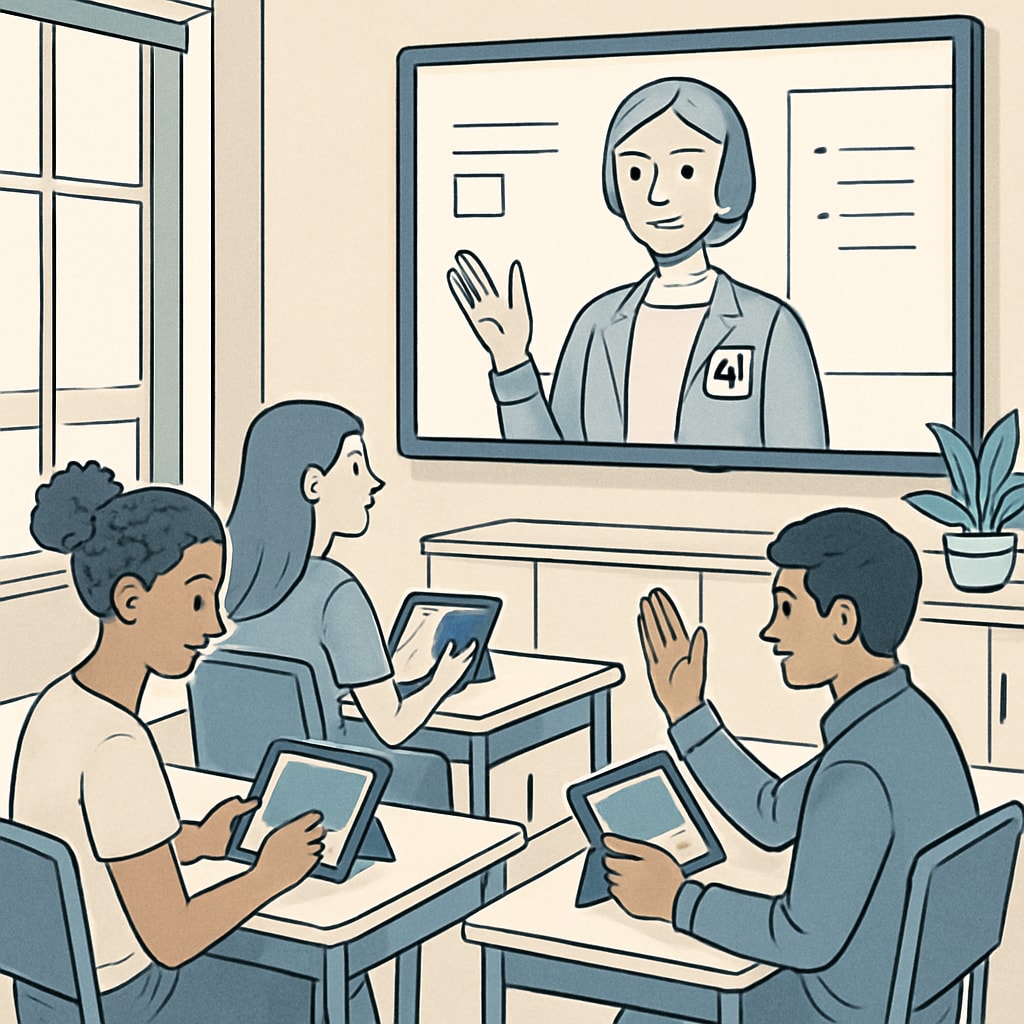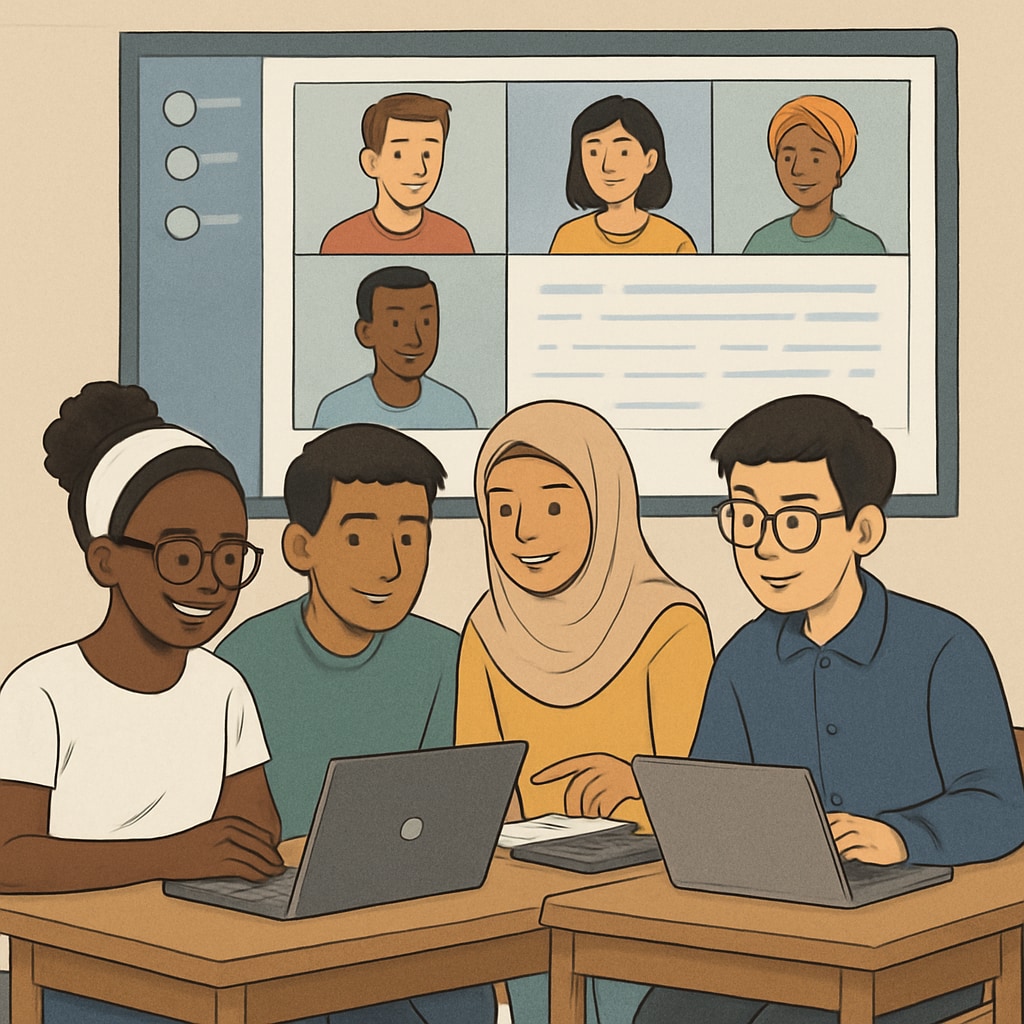Artificial intelligence and globalization are driving transformative changes in the education sector. By 2030, these twin forces will have reshaped the way we teach and learn, setting the stage for a truly global and technology-driven learning environment. Whether it’s through personalized AI tutors, immersive virtual classrooms, or globally synchronized curriculums, education is on the brink of unprecedented evolution.
How Artificial Intelligence Is Revolutionizing Education
Artificial intelligence (AI) is already making significant strides in education, but its influence is set to grow exponentially by 2030. AI-powered tools can provide personalized learning experiences, adapting to each student’s pace and style. For example, platforms like adaptive learning systems analyze student performance to tailor lessons, ensuring no one is left behind.
Moreover, AI can automate administrative tasks, freeing teachers to focus on creative, higher-order teaching. For instance, tasks like grading and attendance are increasingly being handled by intelligent systems. This shift allows educators to dedicate more time to mentoring and fostering critical thinking.

Beyond individual classrooms, AI is enabling global access to quality education. Platforms like AI-driven language translation tools make it easier for students from different linguistic backgrounds to learn together. This fosters inclusivity and ensures education reaches the remotest corners of the world.
The Impact of Globalization on Education Trends
Globalization has long been a driving force in shaping education systems, but its influence will intensify as we approach 2030. Cross-border collaboration is becoming a norm, with students and teachers forming global networks to exchange ideas and resources. For instance, online platforms like Coursera and edX offer courses created by top universities, accessible to learners worldwide.
Additionally, globalization is encouraging the adoption of multicultural curriculums, which prepare students to thrive in interconnected economies. By integrating diverse perspectives and experiences, these curriculums help students develop global competencies, such as cultural awareness and adaptability.

However, globalization also brings challenges, such as the digital divide. As education increasingly relies on technology, ensuring equitable access to digital tools and high-speed internet becomes critical. Policymakers and institutions must work together to address these disparities.
Future Roles of Teachers in AI-Driven Classrooms
In the AI-powered education landscape of 2030, the role of teachers will evolve significantly. While AI can handle repetitive tasks and deliver personalized instruction, teachers will take on roles as facilitators and mentors. Their primary focus will shift to nurturing creativity, emotional intelligence, and critical thinking skills—areas where machines fall short.
Furthermore, teachers will need to adapt by learning how to work alongside AI tools effectively. Continuous professional development, including training in AI technologies and data analytics, will be essential for educators to thrive in this new environment.
The Student Experience in 2030: A Blend of Technology and Collaboration
For students, the education experience in 2030 promises to be more engaging and interactive. Immersive technologies such as augmented reality (AR) and virtual reality (VR) will revolutionize learning by bringing abstract concepts to life. For example, students could explore ancient civilizations or dissect virtual organisms in 3D environments.
Additionally, collaborative learning will become the cornerstone of education. Technology-enabled group projects will allow students from different parts of the world to work together, sharing knowledge and solving real-world problems. This will not only enhance learning but also prepare students for a globalized workforce.
As a result, education will become more holistic, focusing not just on academic success but also on skills like teamwork, adaptability, and emotional intelligence.
Challenges and Opportunities in the 2030 Education Landscape
While the future of education appears promising, it is not without its challenges. Issues such as data privacy, ethical concerns surrounding AI, and unequal access to technology need to be addressed. Policymakers, educators, and technologists must collaborate to create inclusive, ethical, and sustainable education systems.
On the flip side, the opportunities are immense. By leveraging AI and globalization, we can create a more equitable and adaptive education system that prepares students for the complexities of the 21st century. Institutions that embrace these changes proactively will lead the way in shaping the future of learning.
In conclusion, artificial intelligence and globalization are not just reshaping education—they are redefining its very purpose. By embracing these changes, we can create a world where learning is accessible, personalized, and globally interconnected, paving the way for a brighter, more inclusive future.
Readability guidance: Short paragraphs and lists summarize key points effectively. Avoid excessive jargon and ensure a balance of technical and general content. Use transitions like “however,” “in addition,” and “as a result” to improve flow.


